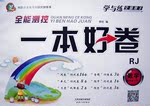题目内容
It was an afternoon in the winter, some friends and I were talking at a restaurant. We talked and talked and soon swimming became the __26___. Suddenly I hit upon an idea. “ Wouldn’t it be ___27_ if we went swimming? Others went swimming in winter, and __28__ couldn’t we? Besides, we could be ___29__ if we did. ” I told them about this and they all said it was a good idea indeed.
Early in the morning, three days _30____, we four were standing at the bus stop, with bags in our hands, ___31__ for a bus to take us to the __32__. The sky was clear, the sun was shining, but all the same, it was very cold, __33__ our heavy overcoats were not enough to keep us ___34__. We all felt that we should go back, but no one wanted to __35__.
We soon reached the sands. There was nobody there, but we were not to be discouraged. _36__ we were proud that we were the __37___ ones that dared to challenge the weather. Besides, the sun could keep us warm. So we __38__ ourselves quickly.
But things were not going to be so nice as we thought. The sea wind was blowing, we felt _39___ cold and we shook from head to feet. At last we decided to ___40__ the sea water. We put our feet in first, only to take them back___41___. The water was unbelievably cold. __42___ I suggested that we should all jump in at the same time. We all went back ten steps. I gave the order and we all rushed forward. We jumped. That feeling I had when I was in the water I shall never __43 . I was up and rushed again to the seaside. So _44___ my friends. We put on our clothes as quickly as possible and went home.
We four did not go to school the next three days, for we all _45_ a bad cold. We missed the lessons, but we had this unforgettable experience.
1.A. topic B. object C. center D. opinion
2.A. lucky B. interesting C. surprising D. happy
3.A. how B. what C. why D. that
4.A. ill B. worse C. better D. stronger
5.A. past B. later C. before D. since
6.A. meeting B. asking C. looking D. waiting
7.A. sands B. swimming pool C. river D. lake
8.A. though B. only C. since D. even
9.A. warm B. cold C. cool D. hot
10.A. talk about B. speak out C. think over D. shout at
11.A. Instead B. For C. Unless D. Sometimes
12.A. lucky B. only C. happy D. younger
13.A. enjoyed B. helped C. changed D. dressed
14.A. a little B. such C. a bit D. very
15.A. go into B. go down C. take off D. jump into
16.A. quickly B. carefully C. finally D. bravely
17.A. Next B. Last C. Then D. When
18.A. forget B. remember C. tell D. believe
19.A. do B. did C. had D. were
20.A. felt B. became C. caught D. turned
1.A
2.B
3.C
4.D
5.B
6.D
7.A
8.D
9.A
10.B
11.A
12.B
13.C
14.D
15.D
16.A
17.C
18.A
19.B
20.C
【解析】略

 全能测控一本好卷系列答案
全能测控一本好卷系列答案 发散思维新课堂系列答案
发散思维新课堂系列答案第三节完形填空(共20小题,每小题1.5分,满分30分)
阅读下面短文,掌握其大意,然后从21至40各个题所给的四个选项(A、B、C、D)中,选出最佳选项,并在答题卡上将该项涂黑。
One day a young man called Jim was told to take the 21 examination the next day. He was 22 so much that he couldn’t get to sleep. He wouldn’t join the army because he was in love with a beautiful girl. “If only I could find a 23 to make the doctor believe there is something 24 with my body,” he thought and thought. Suddenly, a good idea crossed his mind.
The next morning Jim got to the 25 on time and was led into a large room. He hurriedly found a seat to sit down and took out an out-of-date newspaper, 26 to read it. Soon it was his turn to be examined. When he came up to the doctor, the old man took a quick and sharp look at him. Then in a 27 he ordered Jim to take off his clothes, go straight to a corner and sit down on a chair there. No sooner had he seated himself on the chair than he heard the doctor murmuring to his assistant: “Finished! The boy is 28 up to the standard.”
“How can you draw such a 29 like that before you give me a 30 check? Jim shouted at the doctor.
“Don’t be impetuous(冲动), young man! Put on your clothes, and then I’ll 31 it to you,” the doctor said 32 .“You said we didn’t examine you carefully, but I don’t think it
33 for us to do that. When I told you in a low voice to take off your clothes, you did it as I told you. It shows you have good 34 . When you were asked to go and sit on the chair, you did so, too. It shows you can see any subject within a certain distance. 35 , you were found reading the newspaper just now, and we are certain you are a man of intelligence.
36 , you’re perfect in mind and body.”
Half a year later, Jim was killed on the battlefield. At the news his girlfriend nearly went
37 . She kept weeping. “Don’t be like that, my dear.” It was an old man’s 38 voice. “Your Jim died a real man. He 39 his life to the people all over the world. It is right that we should be proud of him…” Saying this, the old man, her father, was choked(哽咽). His only 40 was that he had never had Jim know who he was. This old man was the medical officer who had given Jim the health check.
|
21. 22. 23. 24. 25. 26. 27. 28. 29. 30. 31. 32. 33. 34. 35. 36. 37. 38. 39. 40. |
A. blood A. excited A. way A. new A. hospital A. beginning A. hurry A. hardly A. information A. quick A. give A. calmly A. necessary A. eyes A. So A. In short A. angry A. kind A. spent A. dream |
B. intelligent B. troubled B. person B. good B. camp B. pretending B. breath B. never B. suggestion B. slow B. explain B. coldly B. honest B. ears B. Therefore B. In word B. bad B. loud B. saved B. regret |
C. physical C. frightened C. problem C. right C. office C. deciding C. whisper C. not C. decision C. careful C. say C. happily C. good C. head C. Besides C. In the end C. excited C. low C. devoted C. hope |
D. ability D. delighted D. question D. wrong D. army D. wanting D. flash D. quite D. conclusion D. careless D. bring D. quietly D. right D. body D. However D. In total D. mad D. sad D. killed D. wish |